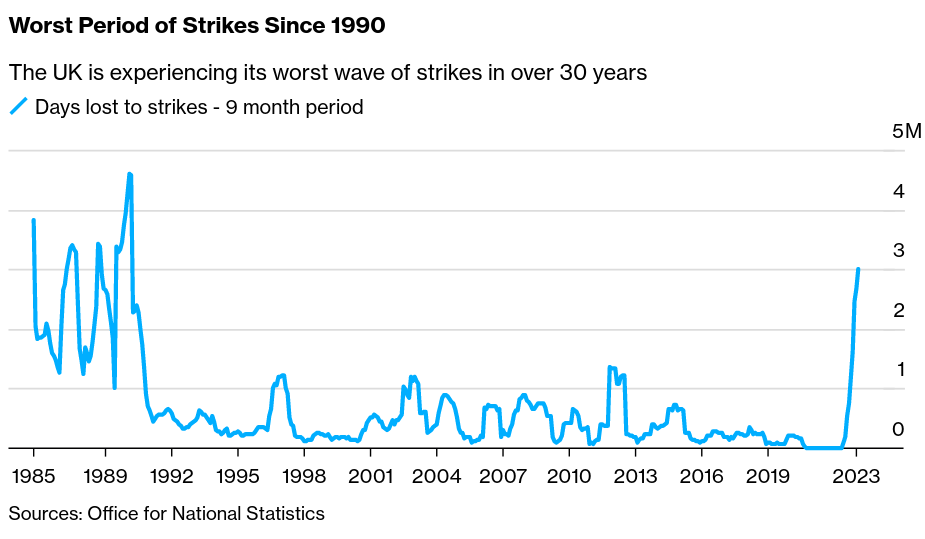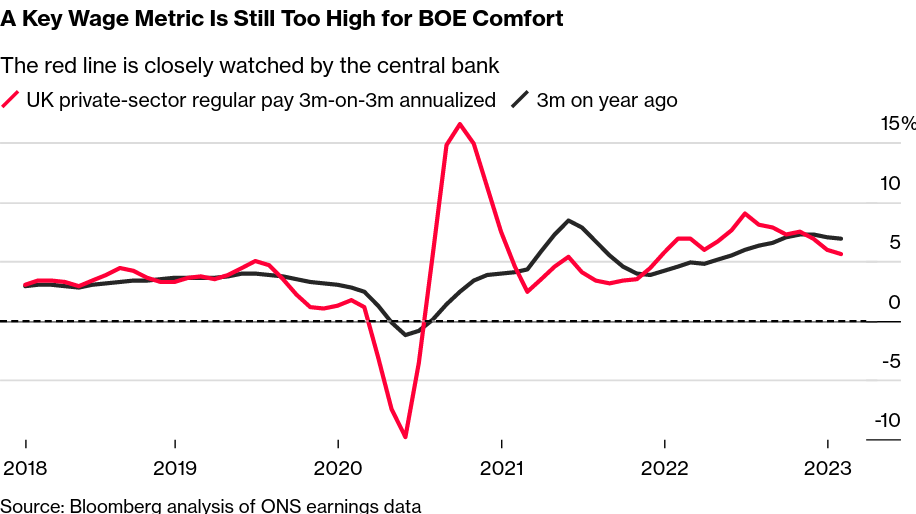April 26, 2023
Class struggle and counter-revolution
OK. You need a revolution to have a counter-revolution. It is more like a counter-angst. Still, the point is that there is a response.
The different actions taken by the UK and USA economies is a test of slightly different political priorities. One thing being shown is that small changes along a political spectrum can have oversized impacts.
The UK economy is run by people who think that, as an island, workers must share the burden of mistakes made by capital and low investment.
The USA economy is run by people who think, as the nation of manifest destiny, workers must work harder to make-up for mistakes made by capital and low investment.
In the UK, there has been a series of mistakes, some bad things happen outside their complete control (Russia invasion of Ukraine), and maybe some bad luck. The mistakes are the things we all need to focus on because while you can do everything correctly and bad things can undo all that, it is remarkably worse when mistakes are made and bad accidents happen.
The mistakes are as follows:
- a right-wing Brexit
- a rejection of a socialist program in Labour
- a political class who have forgotten or do not care about truth
- printing cash and giving it to capital to "keep jobs" instead of to workers as wages
- being beholden to a economic fantasy during a time of inflation
- believing that "we are all in this together" meant workers and capital sharing in economic pain
These mistakes are entrenched in the mythology that the UK is a well managed economy that benefits workers.
The USA on the other hand makes mistakes, but instead of demanding the working class be poorer in wealth, they demand that they be poorer through increased debt, longer working hours, reduced life expectancy, and no social supports. They do this by convincing workers that wealth is about the ability to buy a bigger TV, not the amount of time you have to watch TV.

The impacts of this interesting.
In the USA, profit subsidies funded by promises of increased government spending rain down in the form of IRA, CHIPS Act, and direct support for wage suppression from the state. The impact is a recession, but one everyone is convinced is neither happening or will not happen.
The result is that the recession will pass by, people are and will suffer, but no one will be convinced of that.
In the UK, cuts rain down on every facet of life. Health care, social supports, wages, and standards of living. All have been severely reduced since 2019. We are told the result of all of this is because the government spent too much money keeping people alive during the pandemic and during an energy crisis caused by Russian sanctions.
How is it that spending money essentially the same can have wildly different outcomes? The difference seems to be in the narrative told. In the UK, workers are told they make too much as their wages are sinking. In the USA, no one talks about workers making too much because we blame companies for being monopolists and charging too much for things.
In the UK, strikes directly effect the economic output of the country and the government is just fine not making-up the difference with spending. In the USA, they do not really have strikes.

In the UK, workers are demanding more and the central bank is doing everything in its power to impose discipline on workers. More strike? More rate increases to "bring down inflation".


This is the difference. The political class in the UK is responding to workers demanding more through their unions. In the USA, the political elite do not have to contend with this and just give money directly to capital.
The outcome, in the short-term, is that the UK economy does worse for longer (though capital does fine). In the USA, people cannot seem to tell the difference since they do not realize how poor they really are.
The longer-term impact is yet to be seen. If workers keep demanding more in the UK and reverse some of their mistakes, maybe they will do better. We can hope. And, we can encourage their fight.